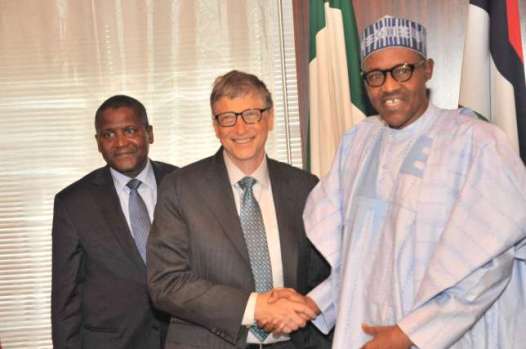 Oxfam International, yesterday, raised the alarm over worsening poverty and extreme inequality in Nigeria.
Oxfam International, yesterday, raised the alarm over worsening poverty and extreme inequality in Nigeria.
Speaking at a one-day colloquium on inequality in Nigeria, organised by Oxfam and Human Environmental Development Agenda, HEDA, Resource Centre in Abuja, Country Director of Oxfam in Nigeria, Mr. Iftikhar Nizami, also aligned with the views of Bill Gates on the need to focus on meeting the needs of people in the quest for economic development.
Nizami, who was represented by Head of Influencing, Oxfam in Nigeria, Mr. Abdulazeez Musa, disclosed that though Nigeria’s economy had expanded at an average of six per cent every year since 2006, more than half of Nigeria’s strong population continues to live in poverty.
However, in support of Bill Gates’ views, Nizami said: “To combat the high levels of inequality in Nigeria, there is an urgent need for political and business leaders to build a profoundly different economy, one that puts the needs of people, particularly women and youths, first.
“Oxfam urges the evolution of economic thinking away from an all-consuming faith in GDP-measured growth, to a more human economy that recognises the well-being of all. It is time to focus directly on reducing inequality and eliminating poverty, in ways that lead to economic prosperity for all.”
In his remarks, Executive Director, HEDA Resource Centre, Mr. Arigbabu Sulaiman, stated that inequality had permeated every facets of the country, especially in the private sector, politics, and in the areas of inclusion, access to essential services and inequality in terms of access to opportunities.
He said: “You have a situation where women constitute most of the population in a job or trade, like in small scale farming, but they have the least access to the factors of production in agriculture.
‘’They are worst impacted by issues of climate change; the conflicts that are largely related to conflicts over resources, climate-related conflicts, women are the worst affected, even though they take the least part in those things. These are drivers of inequality.
“Government policies drive inequality; access to technology and access to education drive inequality; and when we are seeing such monstrous things as the kidnapping of the girl child from school, it means that we are further expanding the gap of access to education between the boy and the girl child. These are drivers of inequality that Nigeria must address as a country.
“We have seen that even in the private sector, where they are cosmetic approach, they do not have proper policy to address the issue of inequality, even between different cadres of staff; like between expatriates and Nigerians. We know the wide gap between senior management staff and people at the lower end of the ladder.”
He argued that in countries where women were given opportunities to express themselves; where the population, irrespective of their gender or their sex, has access to the things that would make them flourish, development was faster achieved than in countries where inequality exists.
Courtesy: VANGUARD








Nigeria is in an urgent need of divine help. Corruption is at an all time high now
Things are getting worse.